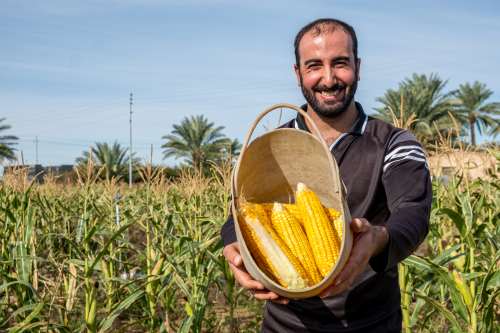

Crop diversification and push to renewable fuels is finally something that Punjab is now moving towards. In a key development, the Punjab state government’s agriculture department has proposed a plan to diversify farming activities by promoting the cultivation of maize as an industrial crop that will help in biofuel production in the state. Maize had been a traditional staple grain of Punjab before wheat and rice had outplaced it during the expansive phase of green revolution.
In 2024, the state government has set a target to cultivate kharif maize on a record 2 lakh hectares in Punjab. This is a significant 106% increase compared to last year. The plan is to replace the water-intensive paddy crop.
Officials from the agriculture department and experts from the Punjab Agricultural University (PAU) suggest that the groundwork indicates a high demand for maize from 18 ethanol plants in Punjab, where it is utilized in the production of renewable fuel blended with petrol.
Jaswant Singh, the state agriculture director, says that industrial value of maize is high as well as its environmental friendliness as against rice cultivation. The acreage dedicated to maize cultivation will be expanded annually by the government.
The plant of Punjab government is to encourage the cultivation of kharif maize in the vicinity of distilleries, where it can be conveniently transported. Incentives will be provided by the government, with details expected to be finalized by the end of the month. Farmers currently growing non-basmati rice, cotton, and summer moong will be encouraged to switch to kharif maize.
In 2023, Punjab farmers cultivated maize on 97,000 hectares. The state has potential to cultivate kharif maize on 5 lakh hectares. Although, there has been a rise in the cultivation of spring maize that is highly water-intensive the government is now trying to farmers to prioritize kharif maize cultivation.
Today, Punjab’s average maize production is 5 lakh tonnes, the distilleries in the state have an annual requirement of 35 lakh tonnes. Hence, corn the industry a reliance on corn from other states. Meeting the industry’s demand locally would be economically beneficial for Punjab growers.
1. The mandate for blending Compressed Biogas (CBG) with natural gas has come into effect…
Andhra Pradesh is striving towards greening its energy sector with quite some speed. In a…
With an objective to bolster India’s green energy goals, a Tripartite Agreement has been signed…
The Union MNRE Minister Pralhad Joshi launched the Green Hydrogen Certification Scheme of India (GHCI)…
India’s energy conglomerate Bharat Petroleum Corporation Limited (BPCL) has commissioned a 5MW green hydrogen plant…
In a historical development, the European Space Agency (ESA) has successfully launched its pioneering ‘Biomass’…